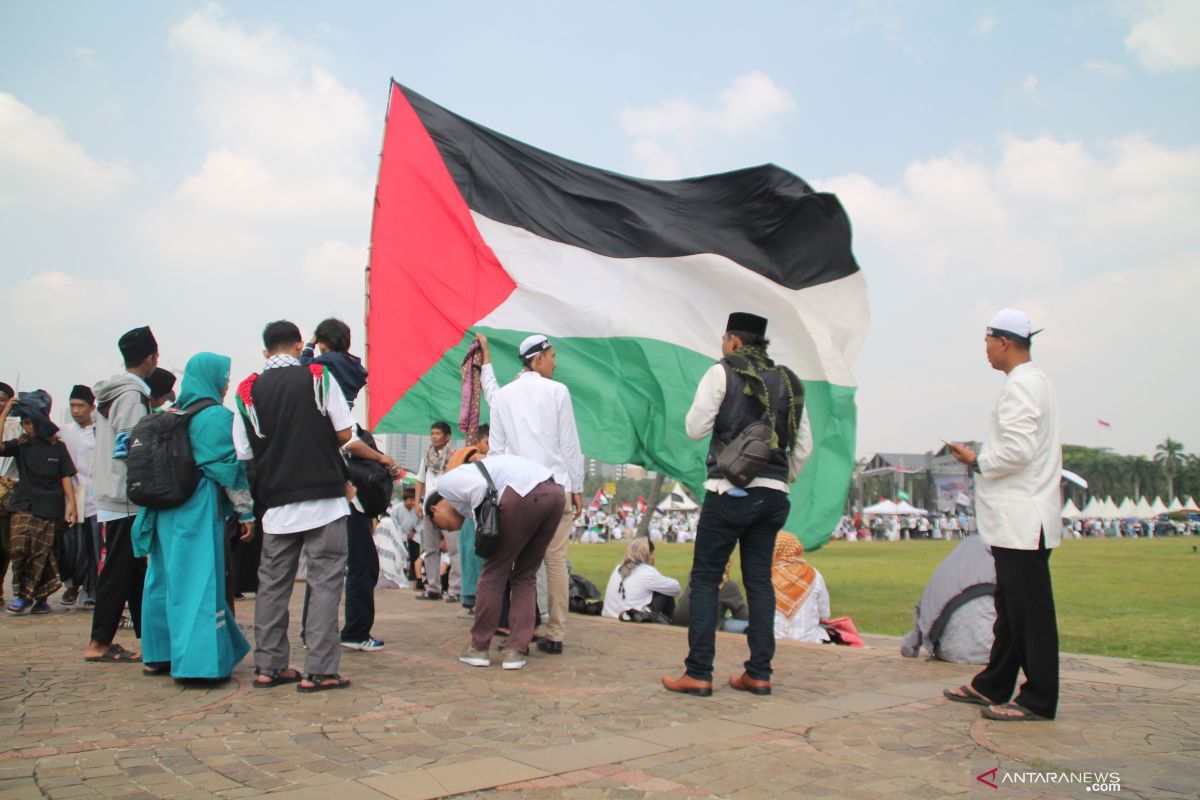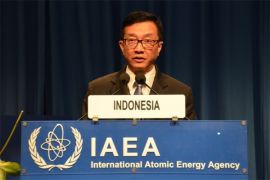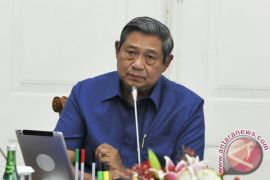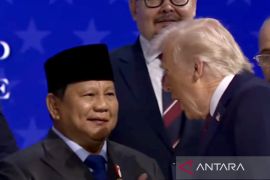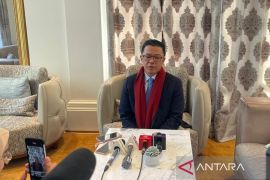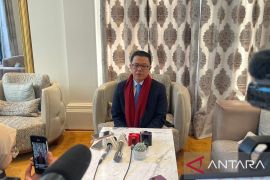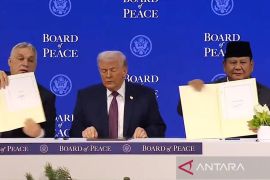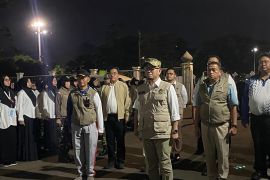However, Indonesian Foreign Affairs Minister Retno Marsudi has been quick to assert that Indonesia has no plans to normalize diplomatic ties with Israel.
“Referring to several news reports saying that Indonesia will normalize ties with Israel, and as a follow-up of Mr. President’s directives to the Foreign Minister, I would like to convey (the information) that Indonesia has no intention to open diplomatic relations with Israel,” the minister told the press on December 16, 2020.
Indonesia’s support for the independence of Palestine based on a two-state solution and other agreed upon international parameters will consistently be maintained, she affirmed.
The government’s consistent stance was commended by House Speaker Puan Maharani and deputy chairman of the Peoples’ Consultative Assembly (MPR), Hidayat Nur Wahid.
"As long as Palestine is not independent, Indonesia stands against the Israeli occupation," Maharani noted in a statement issued on December 18, 2020.
Indonesia’s staunch support was strongly reflected during its non-permanent membership of the UN Security Council (UNSC) for the 2019-2020 period, particularly during its UNSC chairmanship in May, 2019.
The Foreign Ministry had earlier stressed that the government remained committed to ensuring that its membership of the UNSC would facilitate discussions on the Palestinian issue and drum up support for Palestine at the UNSC.
Indonesia’s diplomats at the UN consistently maintained that the Palestinian issue has had an impact on international peace.
As UNSC president, Indonesia initiated an informal discussion "Arria Formula" on Palestine at the UN Headquarters in New York on May 9, 2019.
Speaking at a UNSC briefing on the Middle East situation on May 22, 2020, Minister Marsudi recalled that last January she had underlined that the Palestinian question defined the credibility of the Council.
“Unfortunately, nothing has improved since then, in fact, it (the situation) has even deteriorated. Early this month, we have seen yet another wave of violence in Gaza, resulting in at least 29 casualties from both sides. I appreciate the role of the Secretariat and Egypt to de-escalate the situation. However, we are concerned that the construction of illegal settlements in West Bank persists. It has become de facto annexation. This is why, Indonesia, together with Kuwait and South Africa, organized an Arria-Formula meeting on this issue two weeks ago,” she said.
Calling for resumption of the peace process and an end to the cycle of violence, she said the Security Council must make real progress on this issue, particularly on the Palestinian question, the longest-running issue on the council’s agenda.
Another significant diplomatic fight that Indonesia took on for Palestine was when Prime Minister Benjamin Netanyahu announced in May, 2020 a plan to annex West Bank.
Indonesia proactively kept up the pressure against Israel’s annexation plan through various international forums.
Marsudi sent letters to dozens of governments worldwide to garner support for the rejection of the plan on May 27, 2020.
“I have received positive responses from many countries, including South Africa, Brunei Darussalam, Malaysia, China, Japan, Russia, Tunisia, Vietnam, Egypt, Jordan, Ireland, and France, as well as from the UN secretary general and the OIC secretary general,” the minister stated in Jakarta on July 2, 2020.
Those countries mostly voiced their support for Indonesia’s initiative to urge the international community to prevent and reject the annexation plan. They also stressed the need to pursue a two-state solution to end the Israeli-Palestinian conflict.
At the time, a common concern had been that the annexation would threaten regional and global stability, while also impairing mitigation efforts against the COVID-19 pandemic.
Indonesia, along with Tunisia and South Africa, had also initiated a ministerial-level meeting of the UN Security Council (UNSC) to deliberate on Israel’s unilateral plan to annex Palestine.
"Injustice occurs not because of the absence of justice itself. Injustice occurs because we allow it to happen. This is the time to stop injustice," Marsudi stressed while closing her speech before the UNSC meeting on June 24, 2020.
Furthermore, the minister reiterated that the UN was obligated to restore Palestinian rights to its territory in accordance with the pre-1967 border.
Later, the minister also admitted to raising the Palestinian issue during a call she received from US Secretary of State, Michael Richard Pompeo, on May 27, 2020.
"I emphasize again that Indonesia's position on the Palestinian issue will not change. I hope that the US leadership will prevent Israel from carrying out its plan to continue annexation of the West Bank," Marsudi remarked during a phone conversation with Pompeo.
Not only the Government, the Indonesian House of Representatives (DPR RI) also initiated a joint statement of parliamentarians across the globe against Israel's annexation of Palestinian territories.
The joint statement was signed by over 200 members of parliament from 34 countries. It was launched on the occasion of International Day of Parliamentarism on June 30, 2020.
“In the Joint Statement, parliamentarians around the world express their strong condemnation and rejection of Israel's annexation plan for the Palestinian territories that violates international law and the global rule-based international order," Dr. Fadli Zon, chair of the Committee of the Inter-Parliamentary Cooperation of the DPR, stated.
In addition to political support, Indonesia has also provided financial assistance and capacity building programs to demonstrate its solidarity with Palestine.
Last July, Indonesia donated Rp36.5 billion in humanitarian aid for Palestinian refugees. Of the total, US$1 million was channeled through UNRWA, and US$500 thousand through ICRC.
Over more than a decade, Indonesia has spent US$8 million on about 170 training programs involving more than two thousand Palestinians.
The Indonesian government has implemented a tax-free policy for Palestinian products, such as dates and olive oil, to support the Palestinian economy.
Palestine, which has been under Israeli occupation for nearly seven decades, is the only country in the world to have remained colonized.
It gained de facto recognition as a sovereign state after being approved by the UN General Assembly in 2012, which upgraded its status to a UN non-member state.
"The struggle of Palestine has been at the very heart of Indonesia's foreign policy. In every aspect of Indonesian diplomacy, the Palestinian cause is present," Marsudi affirmed.
Indonesia will continue to stand with the Palestinian people until the day they gain independence, President Joko Widodo said in his first speech at the UN General Assembly on September 24, 2020.
“Indonesia consistently supports Palestine to claim its right,” the President stated.
The consistent stance against colonialism and occupation are in line with the mandate of Indonesia's 1945 Constitution in its Preamble, which states that colonialism must be abolished in this world.
Related news: DPR praises government for not opening diplomatic ties with Israel
Related news: MER-C condoles death of key Palestinian negotiator Saeb Erekat
Editor: Rahmad Nasution
Copyright © ANTARA 2020
